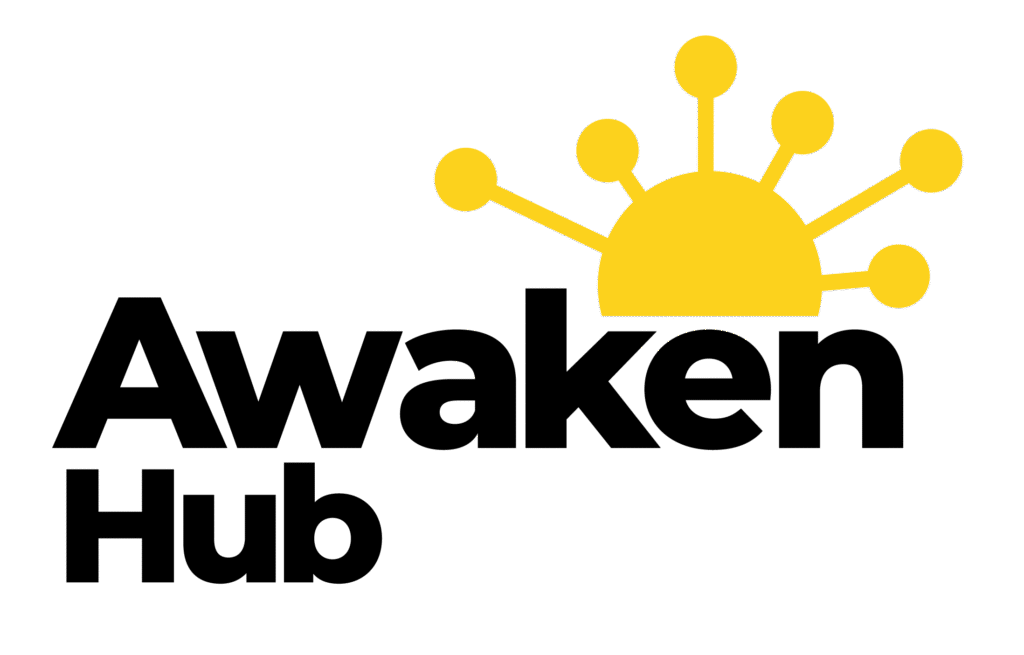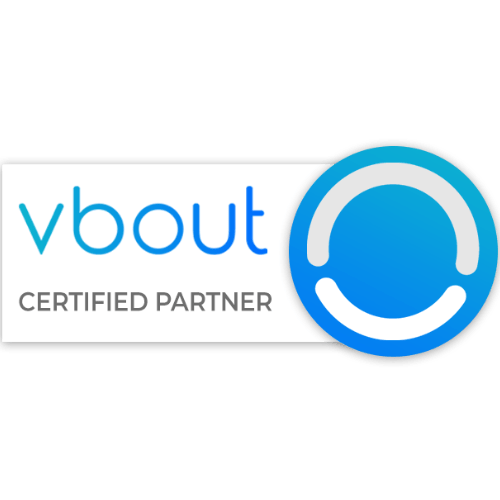Digital Marketing Projects: Top 7 Powerful Ideas for 2024
Introduction
Digital marketing projects are a fantastic way for beginners to gain practical experience and boost their careers. These projects help you understand real-world applications, making complex concepts easier to grasp. Here’s a quick answer for those searching for ideas to start with:
- Social Media Campaign for a Local Business
- Search Engine Optimisation (SEO) Audit
- Google Ads Campaign for a Non-Profit Organisation
- Email Marketing Campaign for an E-commerce Store
- Content Marketing Strategy for a Blog
- Influencer Marketing Campaign for a Product Launch
- Conversion Rate Optimisation (CRO) for an E-commerce Website
Diving into digital marketing might feel overwhelming, especially for business owners in Ireland looking to attract more customers online. But don’t worry, this article will guide you through actionable project ideas to get you started.
Hands-on experience is key in digital marketing. It’s not just about reading theories; it’s about implementing and learning from real projects. By working on these projects, you’ll gain tangible skills that can set you apart in virtually any career.

Social Media Campaign for a Local Business
Execution Strategy
A social media campaign can transform a local business by increasing visibility and customer engagement. Here’s how to execute it effectively:
Identify a Local Business: Start by choosing a local business that would benefit from increased social media presence. This could be a café, boutique, or even a local gym.
Create a Content Calendar: Plan your posts in advance. Include a mix of promotional content, behind-the-scenes looks, customer testimonials, and engaging questions. Tools like Hootsuite or Buffer can help manage your schedule.
Engage with the Community: Respond to comments, share user-generated content, and participate in local events. Community engagement is crucial for building a loyal customer base.
Measure the Impact: Use analytics tools like Facebook Insights or Instagram Insights to track the performance of your posts. Look at metrics such as reach, engagement, and follower growth.
Key Learnings
By executing a social media campaign for a local business, you will gain practical knowledge in several key areas:
Social Media Management: You’ll learn how to manage social media accounts, including scheduling posts and interacting with followers.
Content Creation: Crafting engaging posts, photos, and videos is essential. You’ll get hands-on experience in creating content that resonates with your audience.
Data Analysis: Understanding analytics tools will help you measure the success of your campaign. You’ll learn how to interpret data and make informed decisions to improve future campaigns.
Community Engagement: Building a relationship with the local community can significantly impact a business’ success. You’ll learn strategies to foster and maintain these connections.
Working on this project will not only boost your digital marketing skills but also provide valuable insights into how social media can drive real-world business success.
Search Engine Optimisation (SEO) Audit
Execution Strategy
Conducting an SEO audit is like giving your website a health check-up. It helps you find and fix issues that might be hurting your website’s visibility on search engines. Let’s break it down:
SEO Audit:
Begin with a thorough SEO audit. Use tools to identify technical issues, broken links, duplicate content, and slow page speeds. These tools provide a detailed report highlighting areas needing improvement.Keyword Research:
Keywords are the backbone of SEO. Use tools to find relevant keywords for your business. Look for keywords with high search volume but low competition. Incorporate these keywords naturally into your content.On-Page Optimisation:
Focus on improving on-page elements. This includes optimising meta tags, headers, and images. Ensure your content is high-quality, informative, and engaging. Use your target keywords in strategic places like the title, headers, and throughout the content.Off-Page Optimisation:
Off-page SEO involves building backlinks from reputable sites. Reach out to industry blogs and websites for guest posting opportunities. Quality backlinks can significantly improve your website’s authority and ranking.Link Building:
Develop a link-building strategy. Focus on acquiring backlinks from high-authority sites within your niche.Content Optimisation:
Regularly update your site with fresh, relevant content. Use your keyword research to guide your content strategy. Blogs, articles, and infographics can attract and retain visitors.Performance Tracking:
Use tools to monitor your website’s performance. Track metrics like organic traffic, bounce rate, and conversion rates. Regularly review these metrics to understand what’s working and where improvements are needed.
Key Learnings
SEO Best Practices: You’ll learn the essentials of SEO, including keyword research, on-page and off-page optimisation, and link building. These are fundamental skills for any digital marketer.
Content Optimisation: Discover how to create content that not only engages readers but also ranks well on search engines. This involves strategic keyword placement and regular content updates.
Performance Tracking: Understanding how to use tools to track your SEO efforts is crucial. You’ll learn how to interpret data and make data-driven decisions to improve your website’s ranking.
By mastering these skills, you’ll be well-equipped to improve any website’s SEO performance, driving more organic traffic and achieving better search engine rankings. This project is a fantastic way to dive deep into SEO and see tangible results from your efforts.
Google Ads Campaign for a Non-Profit Organisation
Execution Strategy
Running a Google Ads campaign for a non-profit organisation is a fantastic way to gain hands-on experience in paid advertising while supporting a good cause. Here’s how you can execute this project:
Campaign Setup: Start by identifying a non-profit organisation that could benefit from increased visibility. Google often offers grants for non-profits, which can be a great advantage. Set up the campaign in Google Ads, ensuring you select the right campaign type (e.g., Search, Display).
Ad Creation: Develop compelling ad copy that highlights the mission and goals of the non-profit. Use keywords that potential donors or volunteers might search for. Remember to include a strong call to action (CTA) in your ads.
Conversion Tracking: Implement conversion tracking to measure the effectiveness of your ads. This could be tracking donations, newsletter sign-ups, or volunteer registrations. Google Ads provides tools to set up and monitor these conversions.
Budget Optimisation: Allocate your budget wisely. Start with a small daily budget and gradually increase it based on the performance of your ads. Utilise the grant money efficiently if available.
Ad Performance: Regularly review your ad performance using Google Ads’ built-in analytics tools. Adjust your keywords, ad copy, and budget allocation based on what’s working and what isn’t.
Key Learnings
By working on a Google Ads campaign for a non-profit, you’ll gain valuable insights and skills in several areas:
- Paid Advertising: Understand the basics of paid advertising and how it can drive traffic and conversions.
- Campaign Management: Learn how to set up, manage, and optimise Google Ads campaigns.
- Conversion Tracking: Gain experience in setting up and interpreting conversion tracking to measure ad effectiveness.
- Budget Optimisation: Develop strategies for allocating and adjusting budgets to maximise ROI.
- Ad Performance: Learn how to analyse ad performance data to make informed decisions and improve future campaigns.
This project not only enhances your digital marketing skills but also allows you to make a positive impact on a non-profit organisation.
Email Marketing Campaign for an E-commerce Store
Execution Strategy
Creating an email marketing campaign for an e-commerce store can be a game-changer for customer retention and driving sales. Here’s how you can execute it:
Email List Building: Start by collecting emails from your website visitors. Use pop-ups, sign-up forms, and incentives like discounts or free shipping to encourage sign-ups.
Campaign Creation: Develop a series of emails that will be sent out over a specific period. This could include welcome emails, promotional emails, and follow-up emails. Make sure your emails are visually appealing and mobile-friendly.
Segmentation: Divide your email list into segments based on customer behaviour, purchase history, or demographics. This allows you to send more targeted and relevant emails, increasing the chances of engagement.
A/B Testing: Test different elements of your emails to see what works best. This could be the subject line, email content, or call-to-action buttons.
Performance Analysis: Use analytics tools to track the performance of your email campaigns. Look at metrics like open rates, click-through rates, and conversion rates to understand what’s working and what needs improvement.
Key Learnings
Email Strategy: Crafting an effective email strategy involves understanding your audience and delivering valuable content that meets their needs. This can significantly improve customer retention and sales.
Segmentation: By segmenting your email list, you can send more personalised emails that resonate with different customer groups. This leads to higher engagement and better conversion rates.
A/B Testing: Learn how to test different email elements to find the most effective combinations. This data-driven approach helps you continually improve your email campaigns.
Performance Analysis: Gain experience in tracking and analysing email performance metrics. This helps you make informed decisions and optimise future campaigns.

An email marketing campaign is a powerful tool for any e-commerce store. It not only helps in retaining customers but also drives sales by keeping your audience engaged with your brand.
Content Marketing Strategy for a Blog
Creating a content marketing strategy for a blog is essential for attracting and engaging readers. Here’s how you can do it effectively:
Execution Strategy
- Choose a Blog Niche:
- Identify Your Audience: Understand who you want to reach. Are they tech enthusiasts, food lovers, or fitness buffs?
- Research Popular Topics: Use tools like Google Trends and Answer the Public to find trending topics in your niche.
Conduct Keyword Research:
Create an Editorial Calendar:
- Plan Your Content: Schedule your posts in advance. This ensures a steady flow of content.
Content Types: Include a mix of blog posts, videos, infographics, and guest posts to keep your audience engaged.
Content Creation:
- Write Quality Content: Ensure your content is informative, engaging, and valuable to your readers.
SEO Optimisation: Use your keywords naturally within the content. Include them in titles, headers, and meta descriptions.
Promotion:
- Share on Social Media: Promote your blog posts on platforms like Facebook, Twitter, and LinkedIn to reach a wider audience.
Email Marketing: Send newsletters to your subscribers with links to your latest posts.
Performance Measurement:
- Track Metrics: Use tools like Google Analytics to monitor your blog’s performance. Track metrics like page views, bounce rate, and average session duration.
- Adjust Strategy: Use the data to refine your content strategy. Focus on what works and improve what doesn’t.
Key Learnings
Content Strategy: Develop a clear plan for your blog. Know your audience, choose the right topics, and plan your content in advance.
Keyword Optimisation: Learn how to use keywords effectively to improve your blog’s search engine ranking. This helps attract more organic traffic.
Content Creation: Gain experience in writing high-quality, engaging content. Understand the importance of SEO and how to incorporate it naturally into your posts.
Performance Analysis: Learn to measure the success of your content. Use data to make informed decisions and continually improve your strategy.
By following these steps, you can create a successful content marketing strategy for your blog. This not only helps in attracting readers but also in retaining them by providing consistent, valuable content.
Influencer Marketing Campaign for a Product Launch
Execution Strategy
Influencer marketing can be a game-changer for launching a new product. It involves collaborating with individuals who have a significant following on social media to promote your product. Here’s how to execute it effectively:
Influencer Identification: Start by finding influencers who align with your brand and product. Look for those with a follower base that matches your target audience. Tools like Influence.co can help you identify and evaluate potential influencers.
Collaboration: Once you’ve identified the right influencers, reach out to them with a clear proposal. Explain why your product would be a good fit for their audience and outline the benefits of the collaboration. Be prepared to negotiate terms, including influencer fees.
Campaign Tracking: Set up tracking mechanisms to measure the campaign’s effectiveness. Use unique discount codes, UTM parameters, and analytics tools to track how much traffic and sales are generated from the influencer’s posts.
Relationship Building: Maintain a good relationship with the influencers. Provide them with all the necessary information and support they need to promote your product effectively. Building a long-term relationship can lead to more authentic and ongoing promotion.
Key Learnings
Influencer marketing offers several valuable lessons:
Audience Reach: Collaborating with influencers can significantly extend your reach. According to research, 61% of consumers trust product recommendations from influencers, making it a powerful tool for product promotion.
Campaign Effectiveness: Learn to measure the impact of your campaigns. Tracking metrics like engagement rates, website traffic, and sales conversions can provide insights into what works and what doesn’t.
Relationship Building: Developing strong relationships with influencers can lead to more genuine and effective promotions. It’s not just about a one-time campaign but creating long-term partnerships.
Influencer Fees: Understand the cost involved in hiring influencers. Fees can vary widely based on the influencer’s reach and engagement rates. Be prepared to budget accordingly.
By executing an influencer marketing campaign for your product launch, you can tap into new audiences, build trust, and drive sales. This strategy not only boosts your product’s visibility but also provides valuable insights for future campaigns.
Conversion Rate Optimisation (CRO) for an E-commerce Website
Execution Strategy
Conversion Rate Optimisation (CRO) is all about improving your website to turn visitors into customers. For an e-commerce site, this can mean more sales and higher revenue.
1. User Behaviour Analysis: Start by understanding how users interact with your website. Tools like Google Analytics can show you which pages are popular and where users drop off.
2. A/B Testing: Test different elements of your site to see what works best. For example, try different headlines, images, or call-to-action buttons. Use A/B testing tools like Optimizely or VWO.
3. Element Testing: Focus on key elements like product pages, checkout processes, and forms. Small changes, like the colour of a button or the wording of a headline, can make a big difference.
4. Conversion Improvement: Implement the changes that show positive results from your tests. Keep monitoring the impact to ensure they continue to perform well.
Key Learnings
1. CRO Techniques: Learn various techniques to optimise conversion rates, such as simplifying the checkout process or improving product descriptions.
2. User Experience Optimisation: Understand how to make your website more user-friendly. A better user experience can lead to higher conversions.
3. Data-Driven Decisions: Use data to guide your decisions. This ensures that changes are based on evidence rather than guesswork.
By focusing on conversion rate optimisation for your e-commerce website, you can significantly improve your sales and revenue. This hands-on project will teach you valuable skills in user experience and data analysis, making you a more effective digital marketer.
Frequently Asked Questions about Digital Marketing Projects
What is a digital marketing project?
A digital marketing project involves creating and implementing strategies to promote products or services online. These projects can include activities like SEO, SEM, content marketing, social media marketing, affiliate marketing, email marketing, and influencer marketing.
For example, a Google Ads campaign for a non-profit organisation would be a digital marketing project. You’d set up the campaign, create ads, and track conversions to see how well the ads perform.
Which topic is best for digital marketing?
Choosing the best topic for digital marketing depends on your goals and interests. Here are some popular topics:
- SEO: Improve website rankings on search engines.
- Content Marketing: Create valuable content to attract and retain customers.
- Social Media Marketing: Engage with your audience on platforms like Facebook and Instagram.
- Email Marketing: Send targeted emails to convert leads into customers.
- Influencer Marketing: Collaborate with influencers to reach a broader audience.
- SEM: Use paid ads to drive traffic and sales.
- Conversion Rate Optimisation (CRO): Enhance your website to boost conversions.
What are the top 7 types of digital marketing?
- Online Reputation Management: Manage and improve how your brand is perceived online.
- Conversion Rate Optimisation (CRO): Optimise your website to increase the percentage of visitors who convert into customers.
- Email Marketing: Use email to communicate with your audience and drive sales.
- Content Marketing: Create and share valuable content to attract and engage your target audience.
- Inbound Marketing: Attract customers through content and interactions that are relevant and helpful.
- Social Media Marketing: Use social media platforms to promote your products and engage with your audience.
- Web Analytics: Track and analyse website data to make informed marketing decisions.
What are the 7 P’s mix elements in digital marketing?
The 7 P’s mix elements are essential components to consider in any marketing strategy:
- Product: What you are selling.
- Price: How much it costs.
- Place: Where it is sold.
- Promotion: How you promote it.
- People: Who is involved in the process.
- Packaging: How it is presented.
- Process: The steps involved in delivering the product or service.
Understanding these elements can help you create a well-rounded digital marketing strategy that meets your business goals.
Conclusion
At The Digital Projects, we pride ourselves on being a leading SEO agency in Dublin, Ireland, dedicated to helping small Irish businesses achieve sustainable growth through effective digital marketing strategies. Our expert SEO services and cutting-edge CRM workflow automation solutions are designed to enhance your online presence and streamline your marketing efforts.

Why Choose Us?
- Expert SEO Services: We specialise in optimising your website to rank higher in search engine results, driving more traffic and potential customers to your site.
- CRM Workflow Automation: Our automation solutions ensure that your marketing processes are efficient, freeing up your time to focus on what you do best.
- Tailored Strategies: We understand that every business is unique. Our strategies are customised to meet your specific needs and goals.
Imagine your schedule filling itself, reminders going out automatically, and follow-ups securing more jobs. That’s the power of a well-executed digital marketing strategy combined with automation that works for you.
Sustainable Growth for Small Irish Businesses
We know that running a small business is more than just a job—it’s your passion. But finding the right customers online can feel like a constant uphill battle. Our goal is to change that by providing you with the tools and strategies you need to succeed.

Marketing Efforts That Make a Difference
From SEO and content marketing to social media management and email campaigns, we offer a comprehensive suite of services designed to boost your online visibility and engagement. Our team is committed to helping you achieve your marketing goals and grow your business sustainably.
Ready to take your digital marketing efforts to the next level? Learn more about our SEO services for startups in Dublin and see how we can help you succeed.
By focusing on these essential digital marketing projects, you’ll gain hands-on experience and valuable skills that can significantly boost your career. Whether you’re a beginner or looking to refine your strategies, these projects offer a solid foundation for understanding and excelling in the digital marketing landscape.











